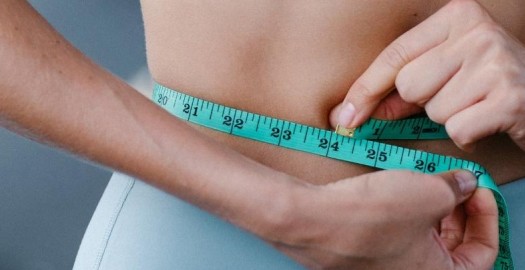Gastric Sleeve Revision
[vc_row css=”.vc_custom_1654629387290{padding-bottom: 45px !important;}”][vc_column][vc_column_text]
What is the Gastric Sleeve Revision?
The endoscopic sleeve revision is a same-day, outpatient, non-surgical procedure that tightens a sleeve gastrectomy to provide restored fullness and satiety. This procedure is best suited for patients who had a surgical sleeve gastrectomy
and have since re-gained weight and can eat larger portions. With an endoscopic sleeve revision, the sleeve is made small again through a brief, outpatient, 15-minute procedure. The result? Patients will find they have a restored sense
of fullness, can feel satisfied with much smaller portions, and can get their lifestyleâand lifeâback on track.
Who it is for?
Endoscopic sleeve revision is best suited for patients who had a sleeve gastrectomy surgery more than two years prior, lost weight initially, but have since regained weight. This procedure is ideal for those who feel they can eat larger
portions and now have a more difficult time keeping their diet on track.
[/vc_column_text][/vc_column][/vc_row][vc_row][vc_column][vc_column_text]
[/vc_column_text][/vc_column][/vc_row][vc_row css=”.vc_custom_1654629836017{padding-bottom: 45px !important;}”][vc_column][vc_column_text]
How the procedure work
Endoscopic sleeve revision is a same-day, outpatient procedure. Your physician will utilize an endoscopic suturing systemâa device mounted to a flexible endoscopeâwhich is then passed into the stomach through the mouth. With this technique, your
physician can tighten your sleeve from the inside, without any incisions. The entire procedure takes 15 minutes under anesthesia, and results in a shorter and tighter sleeve, often smaller than it initially began.
Endoscopic sleeve revision is closely related to the Endoscopic Sleeve Gastroplastyâan advanced non-surgical procedure for patients who want the benefits of weight loss surgery, without the surgery. Because there are no incisions, most patients
will return to work and routine activities within 2-3 days.



[/vc_column_text][/vc_column][/vc_row][vc_row css=”.vc_custom_1654629849322{padding-bottom: 45px !important;}”][vc_column][vc_column_text]
How much weight youâll lose?
The average weight loss following an endoscopic sleeve revision is 15-20% of body weight. While not as drastic as the original surgery, an endoscopic revision can safely restore restriction and allow patients to get back on track. Patients with
the greatest results utilize this new tool, or âsecond chance,â to completely rejuvenate their lifestyle.

[/vc_column_text][/vc_column][/vc_row][vc_row][vc_column][vc_column_text]
Frequently Asked Questions
Endoscopic gastric sleeve revision is a non-invasive technique used to restore a gastric sleeve to its original, or smaller size. Sleeve gastrectomy is currently the most common bariatric surgery performed worldwide. It involves stapling
and removing 80% of the stomach, leaving a narrow, banana-shaped stomach. However, beginning several years after sleeve gastrectomy, the stomach can begin to enlarge.
The result is greater capacity, the ability to eat more food, and weight regain. With endoscopic sleeve revision, we can tighten a stretched sleeve from the inside, using endoscopically placed sutures, reducing its size, and restoring
restriction and fullness.
This procedure is designed for patients who have had a surgical sleeve gastrectomy, initially lost weight, but are now experiencing weight regain and a reduced feeling of fullness during meals.
Endoscopic sleeve revision is only for those who have had a prior laparoscopic or open sleeve gastrectomy. If you have regained weight for reasons other than dilation of your sleeve, you may also not be a candidate. If you have ulcers
or complications from your surgery, you may not be a candidate. If you are an active smoker, you are not eligible for endoscopic sleeve revision.
There are few surgical options available to correct an enlarged gastric sleeve. A surgeon could âre-doâ the sleeve, in an attempt to make it smaller, though this carries significant risk. Alternatively, a surgeon can convert add a bypass
to a sleeve gastrectomy, with a more drastic surgery known as the duodenal switch. This carries additional risk and potential for long-term complications.
In contrast, endoscopic sleeve revision is performed entirely through the
mouth, with a suturing system (Overstitch) mounted to the end of an endoscope. The procedure is brief, and safe, with a risk of complication of 1% or less.
Because endoscopic sleeve revision is performed without incisions, the procedure is same-day, and the recovery is very fast. Most patients return to work within 2-3 days.
The procedure is performed in an outpatient setting in less than 30 minutes. You are sedated during the procedure. After the procedure, you will wake up, recover, then you will be discharged home.
Most patients will experience abdominal discomfort, mild nausea, chest pressure, and stomach spasm. These symptoms are well-tolerated and resolve within 1-2 days. The risk of major complication, such as infection, bleeding, or stomach
injury, is less than 1%.
Most patients will lose an average of 10% to 20% of their total body weight. This is not the same amount of weight that was lost after the original gastric sleeve surgery, though it will allow patients to get back on track and enjoy a
second chance with their sleeve. While individual results may vary, adhering to a structured diet and exercise regimen will increase the likelihood of long-term success.
Patients are urged to adopt healthier eating habits after undergoing endoscopic sleeve revision. Eating slowly and avoiding over-eating are keys to long-term success.
[/vc_column_text][/vc_column][/vc_row]



